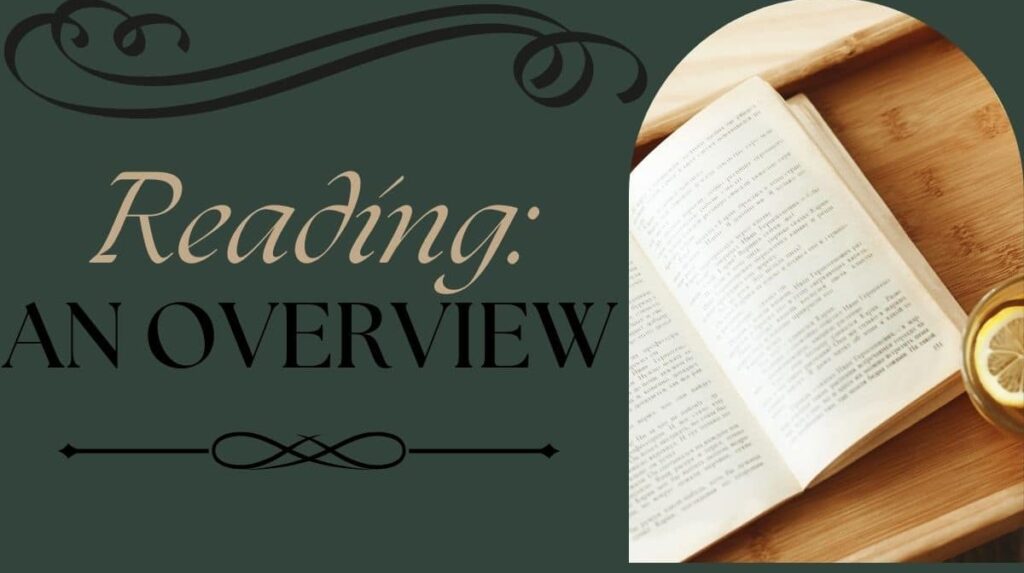Reading is one of the most basic and important skills in our daily lives. We read to learn, to prepare, to answer questions, or just for pleasure. Why do we read? But, most importantly, what is reading really?
This article will give you an overview of reading as a skill and the several definitions that surround it.
Modern View on Reading
Reading is now defined as a complex process of decoding printed symbols in order to derive meaning from them.
But, what does it mean by decoding? And what if you can’t derive meaning from the text, are you truly reading?
Traditional View on Reading
Traditionally, reading is simply looking at a string of printed symbols. If you can recognize the letters, then you’re reading!
Definitions of Reading
Here are other definitions of reading:
Foreign Language Teaching Methods (2010) defines reading as:
- A process undertaken to reduce uncertainty about meanings a text conveys;
- The process resulting from a negotiation of meaning between the text and its reader; and
- The knowledge, expectations, and strategies a reader uses to uncover textual meaning, which all play decisive roles when the reader negotiates with the text’s meaning
Diane Henry Leipzig (2013) defines reading as:
“Reading is a multifaceted process involving word recognition, comprehension, fluency, and motivation.”
Kenneth Goodman (1988) defines reading as:
“Reading is a psycholinguistic guessing game. Reading is a receptive psycholinguistic process wherein the actor uses strategies to create meaning from the text.”
Time to Ponder: The reader has to do two tasks at the same time: produce oral language determined by graphic input and make sense of what is being read. The reader uses prior knowledge and depends on the knowledge they already have when reading.
Can we identify words without constructing meaning from them?
`Twas brillig, and the slithy toves
Did gyre and gimble in the wabe:
All mimsy were the borogoves,
And the mome raths outgrabe.
– “Jabberwocky” by Lewis Carroll
Can we read even if the letters that comprise words are not in their proper order?
I dnot bieleve waht yuor feirnd said aoubt rdaenig. Ttloaly arsbud!
What is Comprehension?
What is comprehension and why do you want your students to understand what they read?
Comprehension is the reason for reading, but it can be the most difficult skill to master — especially for English language learners. Comprehension requires the reader to:
- Make sense of all the words in a text
- Analyze, synthesize and evaluate what they have read
Before we dive deeper into the discussion, here are other definitions you may want to know about comprehension.
Reading Rockets (2014)
For children to be able to accurately understand written materials, they need to:
- Decode what they read;
- Make connections between what they read and what they already know; and
- Think deeply about they have read.
Comprehension, therefore, is the capacity to read, process, and understand what texts convey.
K – 12 Reader (2012)
Needs of the Reader:
- Knowledge of phonemes (individual sound)
- Phonics (link between sounds, letters, and words)
- Cognitive faculty to construct meaning
Time to Ponder: “Do we consider reading and comprehension as one and the same?” What factors affect reading comprehension?
The Bottom Line
We all know that reading is important, but have you ever stopped to think why that is? The ability to read and comprehend texts is vital for almost every aspect of modern life.
From reading the instructions on an aspirin bottle to understanding a historical account of a battle, we use our comprehension skills every day. Reading comprehension doesn’t come naturally — it takes time and practice.
If you’re looking for more resources about reading or professional education, then make sure to browse my page.
